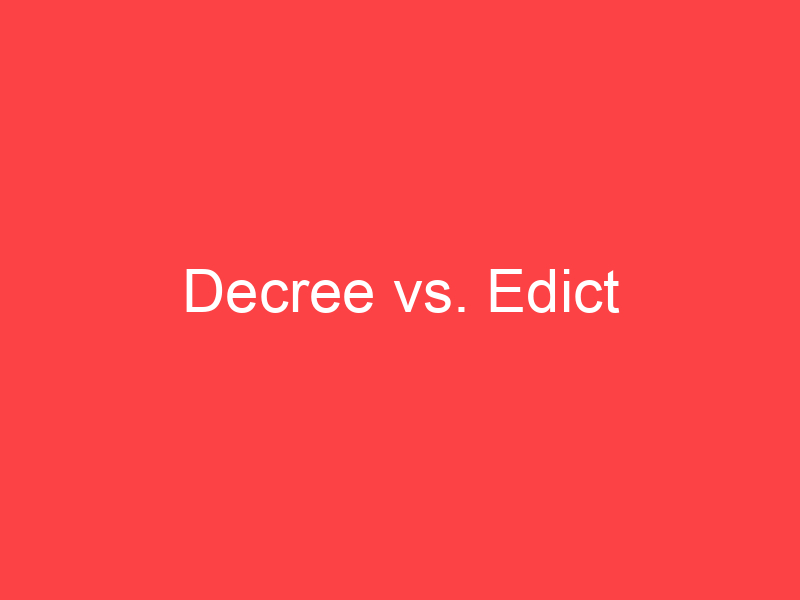Main Difference
The main difference between Decree and Edict is that the Decree is a rule of law usually issued by a head of state and Edict is a announcement of a law, often associated with monarchism
-
Decree
A decree is a rule of law usually issued by a head of state (such as the president of a republic or a monarch), according to certain procedures (usually established in a constitution). It has the force of law. The particular term used for this concept may vary from country to country. The executive orders made by the President of the United States, for example, are decrees (although a decree is not exactly an order). In non-legal English usage, however, the term refers to any authoritarian decision. Documents or archives in the format of royal decrees or farming were issued by rulers.
-
Edict
An edict is a decree or announcement of a law, often associated with monarchism, but it can be under any official authority. Synonyms include dictum and pronouncement.
Edict derives from the Latin edictum.
-
Decree (noun)
An edict or law.
-
Decree (noun)
The judicial decision in a litigated cause rendered by a court of equity.
-
Decree (noun)
The determination of a cause in a court of admiralty or court of probate.
-
Decree (verb)
To command by a decree.
“A court decrees a restoration of property.”
-
Edict (noun)
A command.

